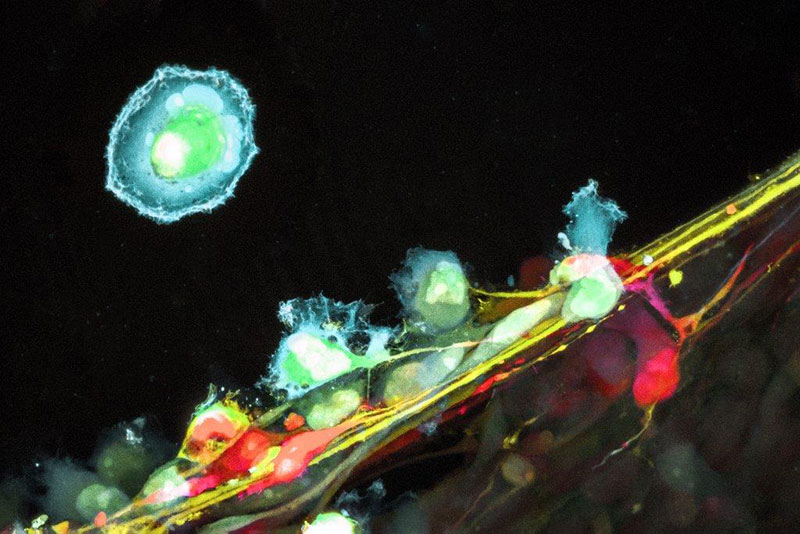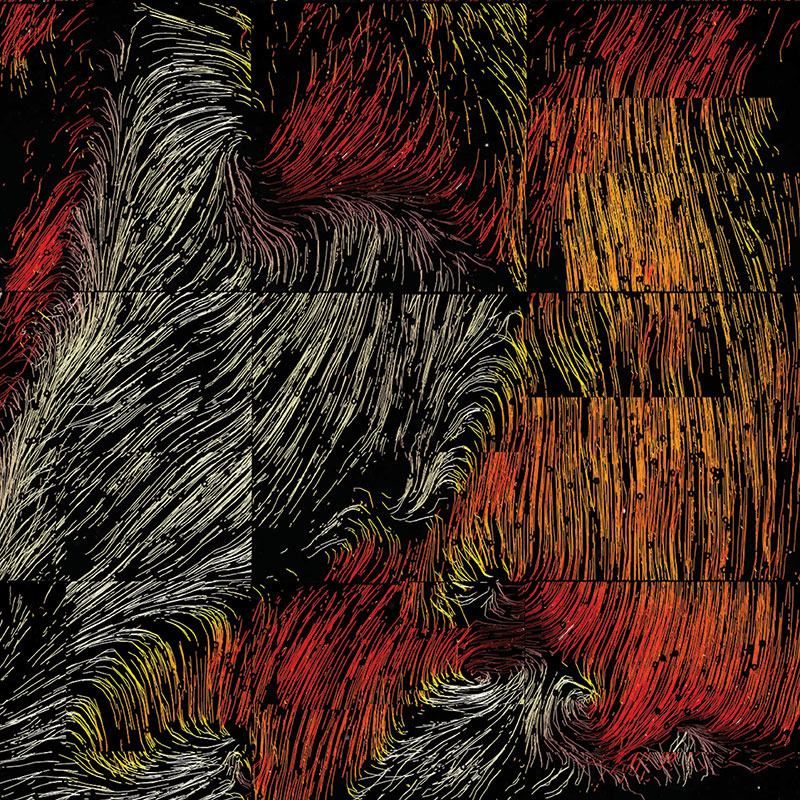 Britta Engelhardt is Professor for Immunobiology and the Director of the Theodor Kocher Institute at the University of Bern in Switzerland.
Britta Engelhardt is Professor for Immunobiology and the Director of the Theodor Kocher Institute at the University of Bern in Switzerland.
After obtaining a diploma degree in Human Biology from the Philipps-University, Marburg in Germany she performed her PhD thesis in the laboratory of Hartmut Wekerle (Max-Planck Clinical Research Group for Multiple Sclerosis, Würzburg and Max- Planck Institute for Psychiatry, Martinsried, Germany) and obtained a Dr. rer. physiol. in Human Biology in January 1991.
After a post-doctoral fellowship in the laboratory of Eugene C. Butcher at Stanford University, California, she set up her own research group at the Max- Planck Institute for Physiological and Clinical Research, Bad Nauheim, Germany in the department of Werner Risau (†December 13th, 1998) in 1993. In 1998 she obtained the Venia Legendi for Immunology and Cell Biology from the Medical Faculty of the Philipps University Marburg, Germany.
From 1999 to 2003 she headed her research group as a senior group leader at the same institute and the Max-Planck-Institute for Vascular Cell Biology (Director Dietmar Vestweber) in Münster, Germany.
In 2003 she accepted the call as Full Professor from the University of Bern.
Britta Engelhardt is a renown expert in the field of brain barriers research.
Her research is dedicated to understanding immune surveillance of the immune privileged central nervous system (CNS) with a focus on exploring immune cell migration into the CNS during immune surveillance and neuroinflammation. Combining her expertise in vascular biology, neuroimmunology and live cell imaging she was amongst those pioneering in vitro and in vivo approaches to study immune cell interactions with the brain barriers in health and neuroinflammation.
In the recent years she has developed sophisticated in vitro and in vivo live cell imaging technologies, transgenic mouse models as well as novel in vitro models of the mouse and more recently also human pluripotent stem cell (hiPSC) - derived blood-brain barrier (BBB) and the blood-cerebrospinal fluid barrier (BCSFB) including leading edge microfluidics. With those models she has defined novel cellular, subcellular and molecular mechanisms involved in the migration of different immune cell subsets across the BBB and BCSFB.
She has published over 300 articles that are highly cited. She is an opinion leader in her field as shown be her regular presentations as invited and keynote speaker at international meetings an her election as Vice-Chair and Chair of the Gordon Research Conference Barriers of the CNS in 2016 and 2018, respectively. Britta Engelhardt has served the scientific community by coordinating several national (Singergia UnmetMS, ProDocCellMigration) and international collaborative networks (JUSTBRIN, BtRAIN) dedicated to brain barriers research and neuroinflammation.
Together with Peter Vajkoczy she has received the Herman-Rein-Prize for their pioneering in vivo imaging of T-cell migration across spinal cord microvessels. She is the president of the Swiss Society for Microcirculation and Vascular Research (SSMVR) and the Co-President of the Medico Scientific Advisory Board of the Swiss MS Society.






